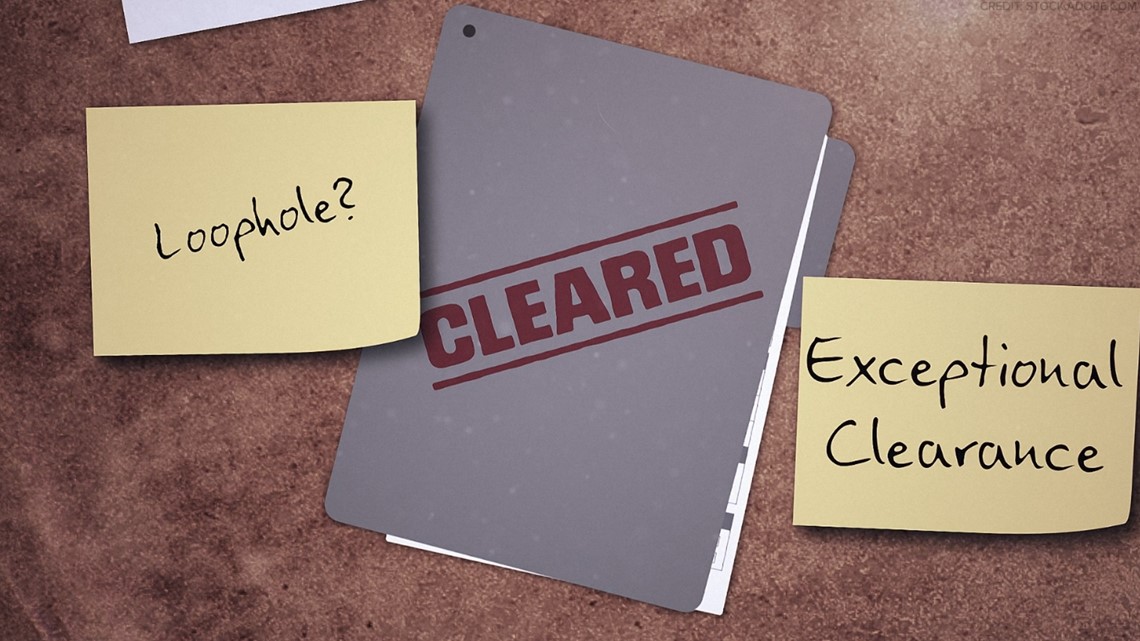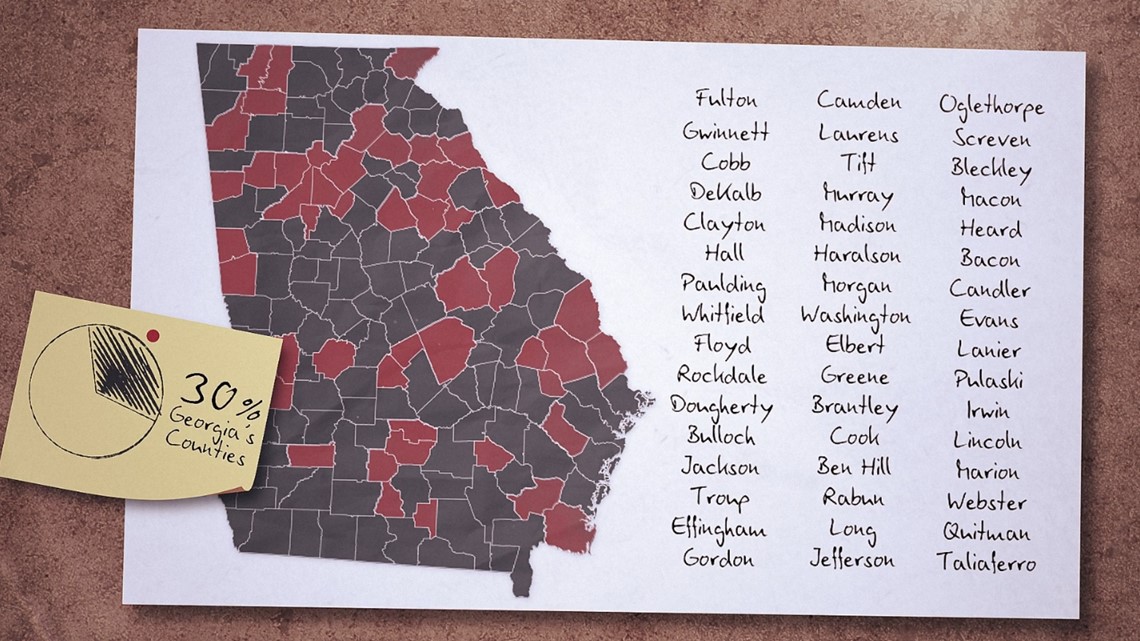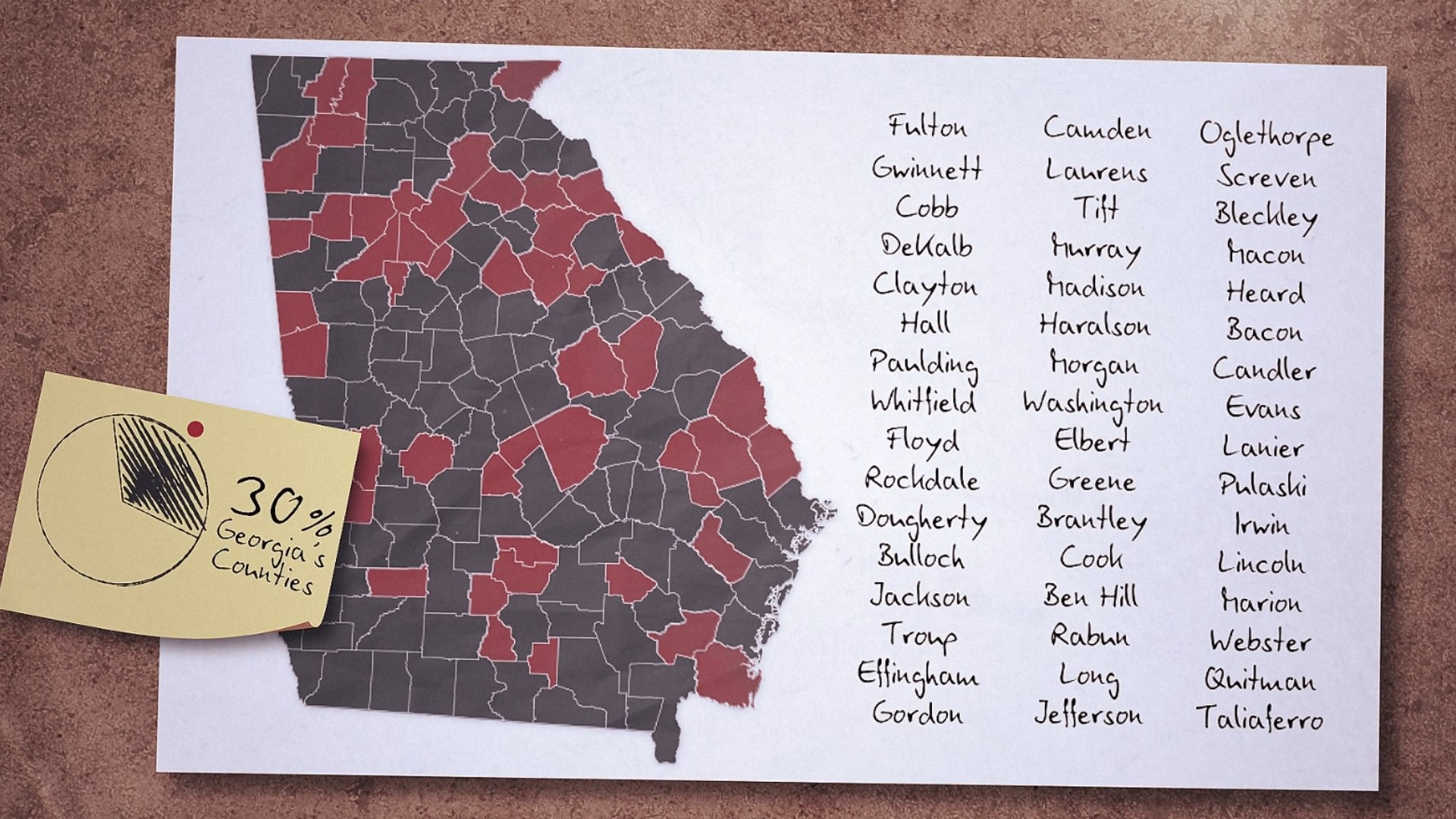ATLANTA — 11Alive investigators found many law enforcement agencies in Georgia are not only using a case closure status called “exceptional clearance” at high rates but also misusing it entirely, for sex crime investigations.
Here's what it means.
Exceptional Clearance defined
Exceptional clearance is a way law enforcement can clear a case when there are elements beyond their control preventing them from arresting and charging an offender, according to the FBI Uniform Crime Reporting.


When Exceptional Clearance can be used
Exceptional clearance allows law enforcement to close crime investigations due to reasons outside of their control.
However, the three most important requirements they must meet to use the clearance code, including in sexual assaults and rapes, are:
- The offender must be identified.
- The offender’s exact location must be established, so they may be taken into custody.
- The investigating law enforcement agency must gather enough evidence to support the arrest, make a charge, and turn the offender in for prosecution.
Examples of circumstances preventing arrests to mark cases exceptionally cleared are:
- The offender has died.
- The victim’s refusal to cooperate with the prosecution after the offender has been identified.
- Denial of extradition because the offender committed a crime in another jurisdiction and is already being prosecuted for that offense.
Why it matters
Exceptional clearance should be used sparingly, according to criminal justice experts, as it is a case closure designation used when arrests and/or prosecution are next to impossible.
Some say anything above the 9% usage rate is alarming.
Our investigation shows not only how many Georgia law enforcement agencies are heavily relying on exceptional clearance to clear reported sex crime cases, but also misusing it as well.
To the public, it can appear that law enforcement agencies are better at solving sex crime cases than they are, leaving victims and their loved ones in limbo.
It also means potential offenders are walking free.
“Under exceptional clearance, the public is under the false impression that we have solved a crime and a rapist has been held accountable,” Liz Donegan, a retired Austin Texas Police Sergeant, told 11Alive. “And that's where the real danger comes in.”
How we did it
The team set out to find the use of exceptional clearance in sex crimes and why it was being used.
In the United States, there are thousands of individual law enforcement agencies.
In 2021, Georgia had an estimated population of more than 10.7 million people in 159 total counties, according to the U.S. Census Bureau. We took a comprehensive look at counties within the state that fell into areas that are Metropolitan, Micro-metropolitan, and rural areas.
In our analysis, we chose 48 out of 159 total counties (30%) for a comprehensive overview for this project.
That included:
- 17 metro counties
- 23 micro-metro counties
- 8 rural counties
Of the counties selected for our research, the team then tracked down each city or municipality within those areas to connect with individual law enforcement agencies.


The team spent more than a year contacting 149 individual law enforcement offices and departments about the total number of sex crime cases reported to them in 2021 and their case closure statuses.
Thirteen agencies could not be reached, despite repeated attempts by the team.
Here’s what we found:
What's the impact
Our ongoing investigation – An Exceptional Problem – is one of the first of its kind, specifically focused on how Georgia law enforcement agencies are using exceptional clearance in sex crime investigations.
Currently, there is no local or national oversight on how law enforcement uses exceptional clearance to close cases.
“There is nothing that is holding agencies accountable that don't [use exceptional clearance] appropriately unless it comes from the media or it comes from groups within the community that are asking for police accountability,” Donegan said.
High rates and the misuse of case closure, can become a public safety issue for all communities, according to experts.
“Well, first it’s a disservice to victims. Secondly, it’s a disservice to the community. This is the polar opposite of keeping the community safe,” said David Thomas, program manager with the International Association of Chiefs of Police.
“[The misuse of exceptional clearance is] sending the wrong message to the community. You know, we’re entrusted with conducting complete internal investigations and holding offenders accountable if we have probable cause to make the arrest. And people who are clearing cases exceptionally are telling the public we have probable cause to hold this rapist accountable, but something is precluding us from making this arrest - that’s the reality,” Donegan told 11Alive. “But the public, in general, doesn't understand what the reality is. So you’re allowing, in a sense, more rapists to go or a rapist to go unaccounted for when cases are cleared exceptionally.”

